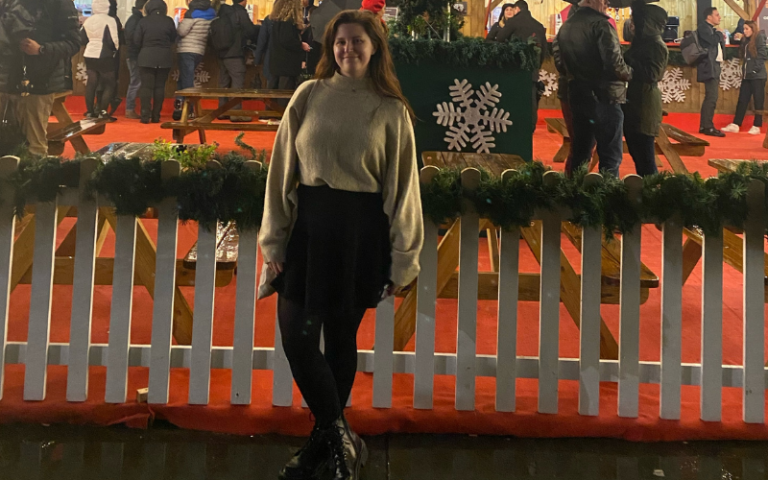Jess -Human Rights student.

Why did you apply to Political Science Department, UCL?
I applied to the PS department because I wanted to further my education within Human Rights.
Tell us about your student recruitment journey, was there something particular that made you apply and accept your offer?
I had been researching different Human Rights based Master’s Programmes in the United States and I found that all of them were lacking. My best friend was actually the one who suggested I expand my search to overseas, which is when I stumbled on this programme. It had everything that I was looking for and more and seemed to be a very well-rounded programme that covered many different areas which I enjoyed.
What were your first impressions of the department?
I was very impressed with everyone’s qualifications in the department and the wide arrangement of backgrounds that everyone comes from; if you have a question about pretty much any subject, there is someone within the department that is an expert in that field and can help answer your questions or give you the proper support to get you to that answer.
What is the rest of your cohort like?
Everyone from my cohort is very supportive of one another. We have a big group chat and if one of us needs help understanding something or if we just have a random question, we are free to ask it in the chat and someone will always answer. It’s one big supportive group and it’s lovely having that support so accessible.
What is the teaching and learning like?
The teaching is very immersive and makes us think about real world applications through the eyes of many different scholars and through the eyes of those who have been affected by different issues. I’ve found that the programme is very reading-heavy, however, it is necessary in order to understand the topic that you will be talking about in class. It’s also helpful if you have these at your disposal when writing your essays later on in the term
What do you like best about your course so far?
I really like that my courses challenge how I previously thought about my topic. There are things that we cover in our course that I would’ve never thought about or would have thought about how this would have been applied to the real world.
What advice would you give to overseas students wanting to study in the UK?
This course will be different from your previous courses. I think the best piece of advice I can give is to pace yourself with your work. Space everything out early and get into a rhythm, especially if you know that you’re likely to put things off until the last minute, which I also don’t recommend; you’re more likely to feel bogged down and overwhelmed that way.
Would you recommend your programme to prospective students and why?
I definitely recommend this programme if you want to be challenged in your way of thinking. You will be opened to a new world of thinking that you probably would’ve never thought existed, or that you know very little about. If you want to expand your knowledge on your subject and develop new ways of thinking, I highly recommend applying.
What are your career aspirations and how do you envisage your master’s helping with these?
I ultimately aspire to work in an NGO helping people. I have also very recently become fascinated with war crimes and implications surrounding States, as well as Global Health. If I could work within any of these fields, I would be happy. My Master’s programme definitely has helped expand my knowledge on most of these topics and has helped me become interested in different areas of the subject that I either knew very little about or didn’t previously know existed.
 Close
Close

